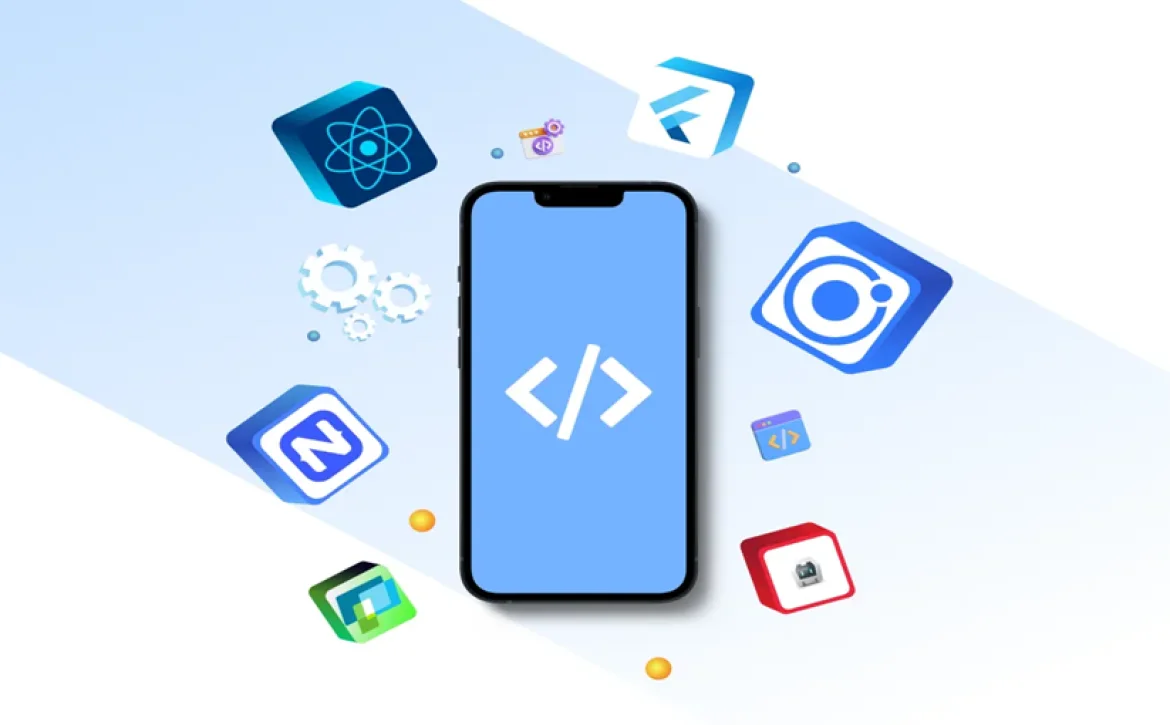Mobile App Development Frameworks for Speed, Scale, and Success
How recently have you utilized an application? Maybe it was to order coffee, track your workout, or connect with friends. Now imagine being the person behind that app, the one responsible for building something smooth, fast, and scalable enough to handle thousands, maybe millions of users. It sounds like a tech fairy tale until you’re actually in the trenches. Whether you’re a developer, entrepreneur, or part of a product team, building a mobile app today is not just about writing code. And that decision can make or break your success. That is where mobile app development frameworks step in.
They are not just lines of pre-written code. They are the backbone of mobile experiences that feel native, respond in milliseconds, and can scale to meet sudden user demand. But here is the catch with so many options, how do you know which framework will actually work for your project? Should you go native or embrace cross platform mobile app development framework? What about speed and future scalability? Is Flutter still the darling of the dev world? Or has React Native regained its edge? Let’s explore the landscape of mobile app development frameworks, compare the most popular choices, and uncover how to match the right tech with your business goals.
Why Frameworks Matter More Than Ever
Speed to market, scalability, and a seamless user experience are non-negotiables in today’s app game. But here’s the truth: even a brilliant app idea will flop if the development process is slow, buggy, or can’t keep up with demand.
Choosing the right mobile application development framework and tools can give your app:
- Faster development cycles
- Lower development costs
- Easier maintenance
- Cross platform compatibility
- Reliable performance at scale
Without a solid foundation, even the best UX design or marketing campaign will struggle. So let’s dive into the top mobile app development frameworks list and see how they stack up in terms of speed, scalability, and success.
Flutter: The Fast-Rising Star
When developers talk about lightning-fast performance and a beautiful UI, Flutter is usually the first name that comes up.
Why Flutter Stands Out:
- Single codebase for iOS and Android
- Custom widgets and rich UI capabilities
- Hot reload for faster testing
- Backed by Google and a growing community
If your goal is to launch quickly without compromising on design, Flutter should be high on your radar. It is ideal for startups and scaleups that need to iterate fast and deliver apps that feel native on every device.
React Native: The Battle-Tested Workhorse
Developed by Facebook, React Native has been a go-to choice for companies like Instagram, Airbnb, and Shopify.
Why React Native Delivers:
- Mature ecosystem with lots of third-party libraries
- Shared code between platforms
- Active developer community
- Backed by Meta, ensuring long-term support
It is a reliable pick for projects with long-term scaling in mind.
Other Cross Platform Mobile App Development Frameworks Worth Noting
These frameworks might be less flashy but are still powerful under the hood.
Xamarin
It is particularly appealing to developers who are already invested in the Microsoft ecosystem.
Ionic
It is perfect for MVPs and apps that do not demand heavy performance.
Each of these options has strengths and trade-offs. Your final decision should depend on your team’s skill set, the complexity of the app, and your long-term product roadmap.
Mobile App Development Frameworks Comparison: What Really Matters
Cross platform language for mobile app development: Let’s get real. But the devil is in the details. Here’s a side-by-side view based on what actually matters to most teams:
| Framework | Language | UI Performance | Speed to Market | Community Support | Best For |
| Flutter | Dart | Excellent | Fast | Growing rapidly | Beautiful UI, startups |
| React Native | JavaScript | Good | Very Fast | Large and mature | Web-to-mobile teams, scaleups |
| Xamarin | C# | Good | Moderate | Strong (Microsoft) | Enterprise apps |
| Ionic | HTML/CSS/JS | Moderate | Very Fast | Active | MVPs, hybrid apps |
| NativeScript | JavaScript | Excellent | Moderate | Moderate | Native performance with JS |
Understanding these differences is key. Do not choose a framework just because it is trendy.
Mobile App Development Frameworks: Scaling Your App the Smart Way
Let’s face it building the app is just step one. Scaling it while keeping performance intact is where the real challenge begins.
Here’s how the right framework supports your scaling journey:
- Cross platform support reduces tech debt early
- Strong community means better long-term maintenance
- Built-in tools help you catch performance issues early
- Reusable code speeds up feature development
Whether you are targeting 10,000 users or planning to onboard millions, the foundation you choose today will either speed you up or slow you down tomorrow.
In the end, there is no one-size-fits-all answer when it comes to mobile app development frameworks. But there is always a smart choice. If you need visual finesse and fast iterations, Flutter might be your golden ticket. If you are building with web technologies and want to tap into a mature ecosystem, React Native is your best bet. If your project leans on enterprise standards, then Xamarin or NativeScript may be the way to go. Remember, tools do not build apps. People do. But the right framework can make your team faster, your product better, and your launch a lot smoother. So before you write a single line of code, take a breath. Evaluate your goals. And choose the framework that will take your idea from code to customer with speed, scale, and long-term success.


